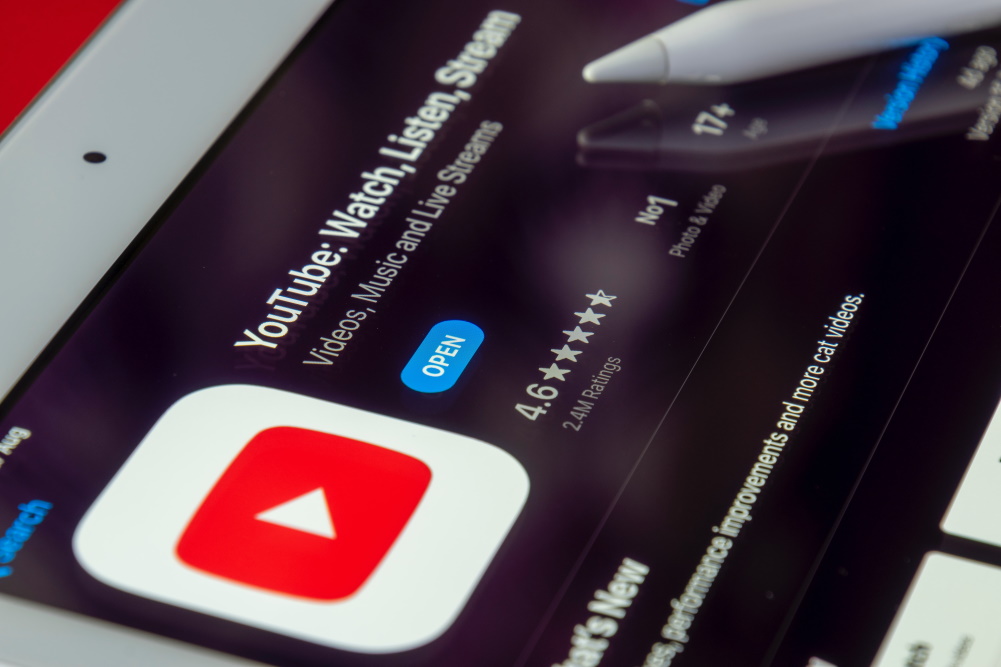YouTube is a powerful platform – it gives you instant access to video content on any topic you can think of. It’s no wonder it’s the second most popular search engine around today.
Whether you’re a student who wants to start searching for a job, an entrepreneur who wants to start a business or a professional looking to move up in the world – is learning on YouTube really the best option?
Let’s take a closer look at the pros and cons.
Table of Contents
Learning on YouTube: The Pros
Free Learning Experience
There’s no doubt that free access is one of the best things about learning on YouTube, especially if your budget is limited. The fact that YouTube is free also gives you the freedom to explore new subjects without having to commit to an online course.
And with the competition being so intense due to the platform’s popularity, YouTube content creators are investing more time and effort in creating popular and engaging videos. This means that content has to be really useful and informative – all while being completely free for viewers.
Peek Into the Classrooms of World Renowned Universities
YouTube is home to thousands of lecture videos from top universities, including Oxford, Harvard, Yale, Chicago University, and many others. If you’re interested in learning what the world’s brightest minds have to say on a topic, you can do so with simple search.
It’s Available Anywhere
With YouTube, you can learn anywhere, anytime. Whether you access YouTube directly from your desktop or download the app, the platform makes it possible to learn in your spare time, whenever that might be.

Great Source of Additional Learning Materials
If you’re ever looking for additional information on specific or intricate topics, YouTube is an excellent resource. Whenever you have trouble understanding terms or ideas, chances are they’re already explained in a video on the site.
Have a physics exam next week but still can’t tell the law of sines apart from cosines? You can find layman explanations on the topic on YouTube. Struggling with French pronunciation? There are tons of videos with explanations regarding the rules of pronunciation.
You Can Rewatch Content as Often as You Want for Free
A great thing about YouTube is that you’re in full control over how fast or slow you learn. YouTube shares this feature with some of the best online learning platforms such as Udemy and Coursera. You can pause, re-watch, or skip the videos to create a more customized learning experience.
Learning on YouTube: The Cons
Even though there are a number of benefits associated with learning on YouTube, there are still some cons.
Content May Come from Unreliable Sources
You can compare YouTube with Wikipedia in this regard. Both platforms struggle with information correctness. And as far as YouTube is concerned, just because a video is popular doesn’t mean it contains true or the best information.
Anyone with access to YouTube can upload videos, so there’s little guarantee over the legitimacy of the content. For this reason, it’s important to use only reliable and proven sources in your learning – universities, organizations, or channels that can be linked to established people in the industry.
Requires an Internet Connection
One of the main issues with YouTube is that you need to be connected to the internet in order to access its content. With a YouTube Premium subscription, you can download videos for offline use – but it comes at a price of $11.99 per month.
Videos Contain Ads
YouTube is able to offer such a wide selection of content because advertisers pay to be on the platform. Sometimes ads can be skipped after five seconds, while others may last up to a minute. Although a minor nuisance, some students may find this distracting. The YouTube Premium subscription offers an ad-free experience, which is a great deal and can alleviate the risk of distraction while learning.

Focuses on Individualism
Compared to some popular online learning platforms with a thriving community of students who learn about a particular subject, YouTube promotes an individual approach to learning. Even though this comes with benefits in terms of privacy, it’s also a drawback since students are left without the option of support and solving problems together.
Lack of Guidance
Since content creators don’t monitor your progress while learning on YouTube, you don’t get the guidance and help that you would if you signed up for an online course. This can be demotivating for some students who need an extra push to keep up with their learning goals.
No Qualifications
One of the biggest cons of learning on YouTube is that you have nothing to show for your efforts. You can gain a lot of practical knowledge from the videos, but there’s no way to crown that knowledge with a certification.
How to Use YouTube to Supplement Your Studies
Before you decide to use YouTube to supplement your studies, make sure the videos you’re interested in were created by reputable experts and have positive reviews.
It also helps to check the channel’s homepage to learn more about the individual or organization. Professional associations, journals, research institutions, book publishers, and universities are typically trustworthy channels.
And if you’re searching for the ideal online course, don’t forget to browse the Coursary site.
